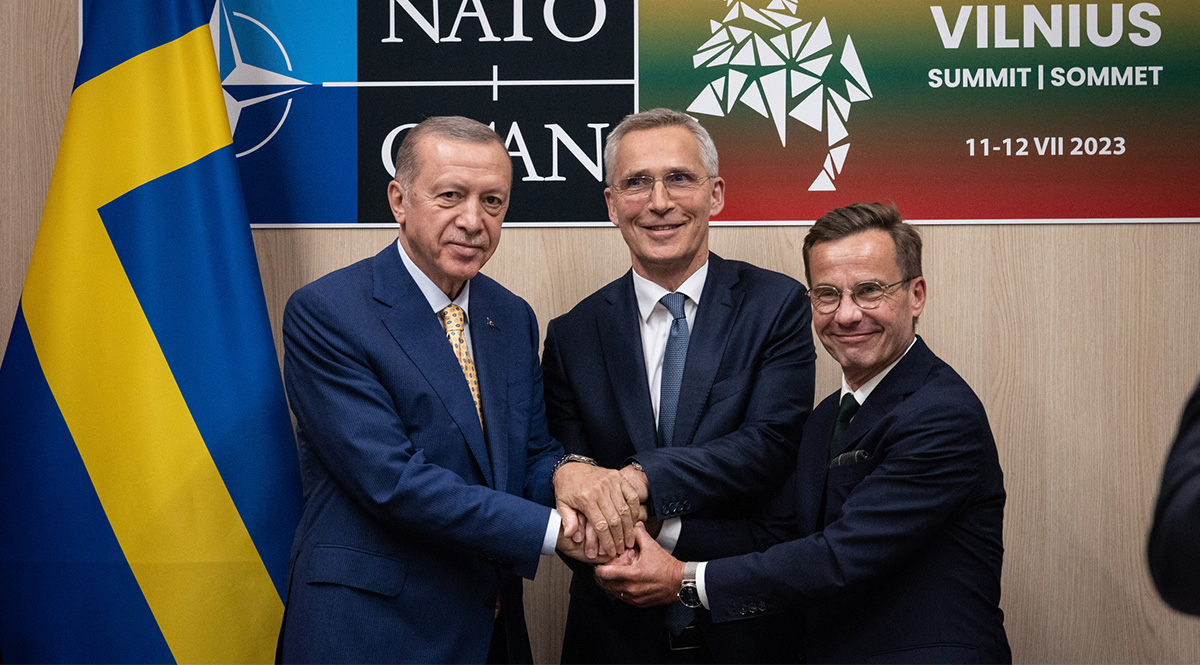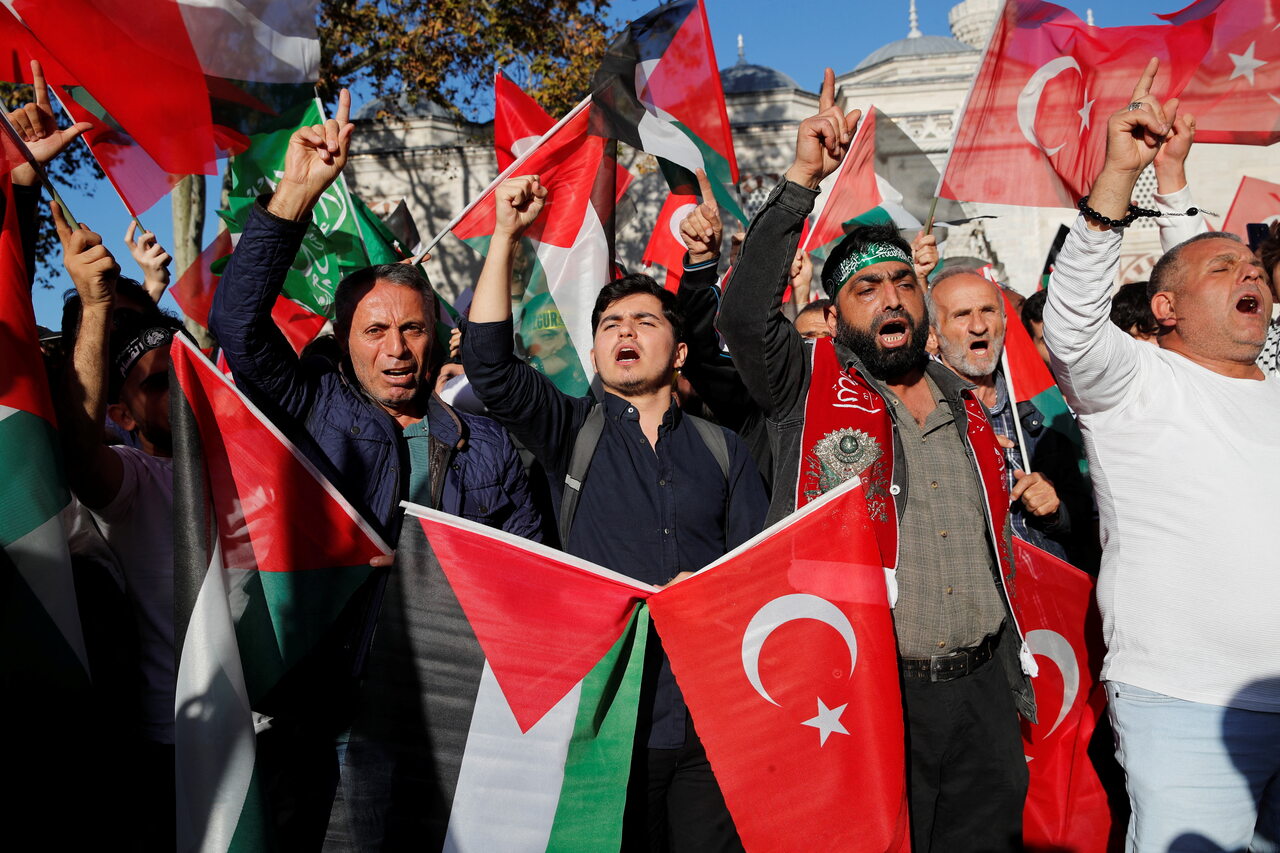Türkiye Approves Sweden's Accession to NATO
On 23 January, after a bilateral crisis that lasted from May 2022 to the new year, the Turkish parliament finally approved Sweden’s membership of NATO. In unlocking the enlargement, Türkiye expects more political and security support from the other NATO members, primarily the U.S.
 ABACA / Abaca Press / Forum
ABACA / Abaca Press / Forum
What was the reason for Turkey delaying the process?
Türkiye made the accession of Sweden and Finland to NATO conditional on changes in their policies towards organisations considered a threat to Turkish security. This included, in particular, a tougher stance towards the Kurdistan Workers’ Party (PKK), the expulsion of Turkish citizens considered by Turkish authorities to be terrorists, and the lifting of sanctions imposed on the Turkish defence industry following the military operation in northern Syria in 2019. Although Finland has not complied with all of Türkiye's demands, including extradition, it became the 31st NATO member in April last year. The Swedish actions were considered insufficient by the Turkish authorities. This position softened as a result of Sweden’s approval of anti-terrorism legislation last June. It also has cooperated with Türkiye in combating all forms of terrorism and pledged support at the EU level on the modernisation of the customs union and visa liberalisation. As a result, President Recep Tayyip Erdoğan submitted a protocol of approval to parliament, which was adopted on 23 January. In total, 287 parliamentarians voted in favour of Sweden joining the Alliance, 55 opposed it, and four members of parliament abstained. Accession was supported by the government camp and the largest opposition party. Opposition to Sweden’s membership of NATO was expressed by the left and one of the nationalist and conservative parties on the grounds that Türkiye’s demands were not met by the Swedish side.
What was the role of the relationship with the U.S.?
Türkiye’s approval of Sweden’s accession to NATO was linked to its desire to buy 40 F-16 multi-role aircraft and 80 upgrade kits for its existing aircraft from the U.S. President Joe Biden’s administration supported this process, while Congress blocked it. Biden’s opponents (e.g., former head of the Senate Foreign Relations committee, Bob Menendez) highlighted the confrontational nature of Türkiye’s foreign policy and the risk of that country using the F-16s in, for example, territorial disputes with Greece. A softening of the rhetoric presented by Türkiye’s opponents in the U.S. Congress followed Erdoğan’s trip to Greece at the end of last year. Although Türkiye still has not received the required equipment, President Biden sent a letter to Congress on 24 January asking for approval of the sale. However, the process may continue to be blocked in Congress as a result of the Turkish position towards Israel’s war against Hamas.
What will be the political impact of the decision?
Turkish approval of Sweden’s accession to the Alliance has strengthened the pressure on Hungary, the last state blocking the admission. Although Russia has criticised Sweden’s and Finland’s efforts to join NATO from the outset, the Turkish parliament’s approval of Sweden’s membership of the Alliance has not prompted a harsher diplomatic response from Russia and does not herald a deterioration in bilateral relations (according to a statement by Yuri Ushakov, chief foreign policy advisor to Vladimir Putin, the leader is expected to visit Türkiye in February and discuss with Erdoğan the situation in Ukraine). The Turkish approval of Sweden’s accession to the Alliance will not contribute to a change in Turkish policy, as the country has supported the Alliance’s enlargement policy over the years. At the same time, it provides an opportunity to end the diplomatic impasse between Türkiye and the West, particularly in its relations with the United States. Sweden’s entry into NATO will strengthen the Alliance’s ability to deter and defend against Russian aggression directed against member countries in the region, and will also create the possibility of using Swedish territory for a defence operation.



.jpg)
.jpg)
